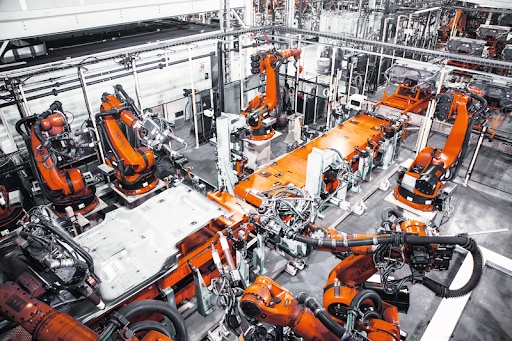Innovative Engineering: Redefining Manufacturing with Factory Automation
Factory automation is undergoing a revolutionary transformation, thanks to innovative engineering solutions that are redefining the manufacturing landscape. This article explores the role of innovative engineering in manufacturing, the evolution of factory automation, key technologies driving the industry, benefits, challenges, and implementation strategies.
1. Introduction to Factory Automation
Factory automation involves the use of technology and machinery to automate manufacturing processes, improving efficiency, reducing costs, and enhancing product quality. Innovative engineering solutions play a crucial role in driving advancements in factory automation, enabling manufacturers to stay competitive and meet evolving market demands.
2. The Role of Innovative Engineering in Manufacturing
Innovative engineering is instrumental in redefining manufacturing by introducing cutting-edge technologies and methodologies. From robotics and IoT integration to artificial intelligence and predictive analytics, innovative engineering solutions empower manufacturers to streamline operations, increase productivity, and deliver innovative products to market faster.
3. Evolution of Factory Automation
The evolution of factory automation has been characterized by advancements in technology and industry needs. From traditional mechanical systems to modern digitalization and smart manufacturing, factory automation has undergone a significant transformation, paving the way for more efficient, flexible, and interconnected manufacturing processes.
4. Key Technologies Driving Factory Automation
Robotics and Automation
Collaborative Robots (Cobots)
Cobots work alongside human workers, enhancing productivity and safety in manufacturing environments. They are designed to perform a wide range of tasks, from assembly and material handling to quality inspection, with precision and efficiency.
Autonomous Systems
Autonomous systems, including autonomous mobile robots (AMRs) and automated guided vehicles (AGVs), optimize material handling and logistics in factories. These self-guided vehicles navigate autonomously, improving workflow efficiency and reducing manual labor requirements.
Internet of Things (IoT) Integration
Sensor Networks
IoT integration involves the use of sensor networks to collect real-time data from equipment and processes. These sensors monitor various parameters, such as temperature, pressure, and humidity, providing valuable insights for optimization and decision-making.
Real-time Data Analytics
Real-time data analytics processes the data collected by IoT sensors, providing actionable insights into production processes. By analyzing this data in real-time, manufacturers can identify inefficiencies, predict maintenance needs, and optimize production schedules.
Artificial Intelligence (AI) Applications
Machine Learning Algorithms
Machine learning algorithms optimize production processes, predict equipment failures, and improve overall efficiency by analyzing data and making intelligent decisions autonomously.
Predictive Maintenance Systems
Predictive maintenance systems use AI algorithms to predict equipment failures before they occur, minimizing downtime and maximizing productivity.
5. Benefits of Innovative Engineering in Manufacturing
Innovative engineering solutions offer numerous benefits to manufacturers, including increased productivity, reduced costs, improved product quality, and faster time-to-market. By leveraging advanced technologies and methodologies, manufacturers can optimize operations, enhance competitiveness, and drive innovation in the industry.
6. Overcoming Challenges and Implementation Strategies
While innovative engineering solutions hold immense potential, challenges such as high initial costs, integration complexity, and workforce training may arise. However, by adopting a phased approach to implementation, investing in training programs, and collaborating with automation experts, manufacturers can overcome these challenges and successfully implement innovative engineering solutions.
7. Conclusion
In conclusion, innovative engineering is reshaping the manufacturing industry by driving advancements in factory automation. By embracing cutting-edge technologies and methodologies, manufacturers can optimize operations, increase productivity, and stay ahead of the competition in today's dynamic market landscape.


No comments yet